The tasks ahead for Bangladesh
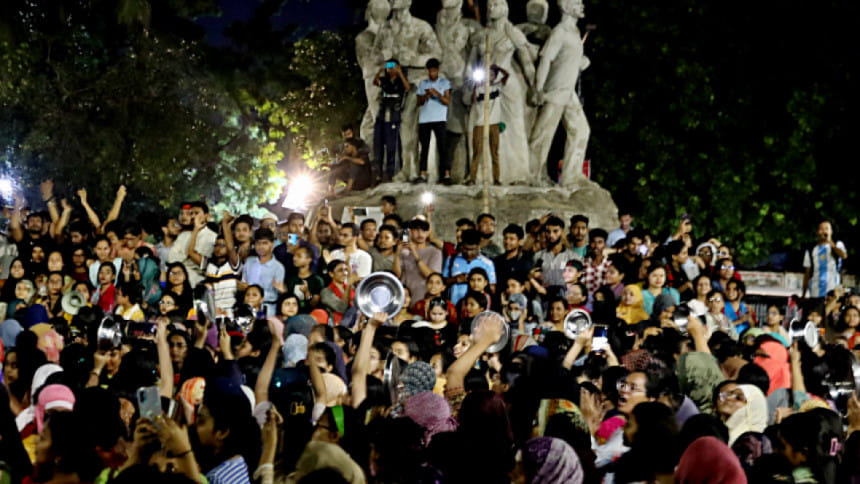
As Bangladesh is settling after the unprecedented events over the past weeks—the mass movement, hundreds of lives lost, the overthrow of Awami League government—one of the critical questions before us is what next. What needs to be done in today's Bangladesh, as the country is trying to move forward? The actions needed has an immediate perspective, a short-run one, as well as a medium-term and a long-term context.
Immediately, the broken structure of the law and order-enforcing police administration must be restored. No doubt increasing politicisation of the police force over time, and the recent police actions led to much anger and hostility of the common mass against the police. As a result, the police force is in a state of fear. A large number of police stations have been burnt down and were not functioning for almost a week.
Second, social resistance to all kinds of violence must be ensured and legal actions taken. One aspect of this violence is the destruction of public property and buildings, which is not desirable because they belong to people. Measures must be taken to avoid all kinds of revengeful acts and looting. The other kind of violence manifests in the attacks on the lives, and properties of minorities, especially religious minorities, and their places of worship. It is gratifying to observe that the collective and concerted efforts of student-public alliances are ensuring the safety of minorities and the protection of their properties and places of worship. Such efforts need to be consolidated.
Third, the destruction of historic national symbols, such as pictures and photos, paintings, sculptures, and museums, can never be beneficial. They are part of national heritage and identity. To understand where we want to go as a nation it is essential to know where we have come from. Setting fire to the Bangabandhu Memorial Museum on Dhanmondi Road Number 32, the desecration of sculptures of the Father of the Nation, and other notable figures represent the destruction of our historical journey as a nation. These are unpardonable crime, which deserves due punishment.
One immediate task of the interim government would be to undertake an objective inquiry into the killings over the past weeks, to bring them to justice and punish them. Similarly, actions should be taken against those who are responsible for the destruction of public properties, symbols of national history and national heritage.
After the immediate actions, the first task to be undertaken in the short-term involves the creation of a democratic, transparent and participatory platform for citizens' dialogues. In such dialogues, there has to be an effective representation of all groups in the society—women, young people, indigenous peoples, persons with disabilities, people of third gender etc.
Those dialogues may have three aspects—one, a political dialogue which should raise questions such as—should the future parliament of Bangladesh have two houses; should there be proportional representation in it; should there be term limits on government, etc. There can be public debates in the context of constitutional reforms as well—issues of reverting to the 1972 Constitution of Bangladesh or formulating a new constitution, reflective of the hopes and aspirations of the new generation. The latter issue, however, would require a constituent assembly.
Economic issues may constitute the second aspect of the public debate. The LDC graduation of Bangladesh would possibly be finalised during the tenure of the interim government, and as a result, some of its determinants would be relevant for them. Therefore, the interim government has to confront, in the scenario of changed realities, the issue of Bangladesh's readiness for the graduation, the negotiations with our trading partners, and formulation of a blueprint for protecting the interests of the country.
Issues of social harmony, human rights, social inequities, social violence and terrorism may be at the core of the third aspect of public debates. Dialogues on poverty, deprivation and issues of marginalisation may represent the major part of the social inequities. There should be an open and honest discussion on communal harmony, issues of minority insecurities, and the responsibilities of the majority.
While short-term reforms are required in various areas, they must align with the future medium-term reforms. One critical reform in the short-term should be in police administration so that even in the short-term, an apolitical, people-friendly, public service-oriented police force can be constituted. The other necessary short-term institutional reform is required in such entities as the election commission. The independence and neutrality of the commission must be enhanced to the highest level so that it can duly perform the mandates bestowed on it. Three, in the financial sector, short-term reformatory measures may be undertaken to combat money laundering and wealth exodus, which would increase the country's resource-base.
In light of the recent events in the country, the nature and dynamic of the relationship of Bangladesh with other countries may change. Because of the changed realities, there may be a need for reconstructing the collaborative and trusting relationship with various countries and international organisations. The interim government will have to perform these tasks in the short-term.
The most important task in the short-term will be to organise, on the basis of public debates and dialogues mentioned earlier, a free, fair, neutral and participatory election. In fact, this would be the prime responsibility of the interim government, which should delegate the reformed election commission this responsibility and oversee the election process. After holding the election effectively, the interim government will hand over power to the elected representatives of the people and with that, the mandate of the interim government will come to an end.
In the medium-term, Bangladesh would need multidimensional reforms. It is well known that the political and economic institutions of the country have been increasingly suffering from fundamental institutional weaknesses due to years of neglect and politicisation of the system, making these institutions less and less effective. An important mandate of the post-election representative government will be institutional reforms in the country.
The scope of the reforms will have to be widespread. On one hand, such reforms would encompass the independence of the judiciary, the rule of law, and various aspects of public administration, e.g. law and order enforcing institutions, the Public Service Commission, the Anti-Corruption Commission; on the other, they would also be in different economic and social areas. The economic sector would include the banking system, monetary and fiscal policies, the tax structure etc. Reforms are also necessary in such economic institutions as the Bangladesh Bank, the Planning Commission. Ensuring a structure and a culture of transparency and accountability should be at the core of the reform so that such evils as nepotism and corruption can be combatted. In the social sector, reforms have to happen in the education and health sectors.
One critical aspect of the mass movement is the focus on a disparity-free Bangladesh. In our society, disparities have many faces and exist not only in outcomes among various socioeconomic groups and regions but are present in opportunities, in education, health and in employment. In fact, disparities in employment were one of the major complaints of young people. In the medium-term, different reformatory measures are essential to reduce the multidimensional disparities in Bangladesh.
One of the most important tasks in the medium-term would be formulating a long-term vision for Bangladesh, which would identify the path for tomorrow's Bangladesh. Today's youth would be the main architect of that vision, which would motivate and guide the future of Bangladesh. Today's young people would no longer remain the "future of the country," rather they would be the "present of the country."
Let us conclude with three observations. First, an interim government cannot be an alternative to an elected government. In that context, the tenure, mandate and scope of the work of an interim government must be limited and must be duly defined. A large part of the citizens of Bangladesh feel that the tenure of an effective interim government should not be more than two years.
Two, whether election first and reform second or whether it should be the other way round is an unproductive question. Since the fundamental reforms are to be undertaken by the elected representatives of the people, election should precede fundamental reforms. This is because, without the approval of an elected government, fundamental reforms would not receive the required political legitimacy.
Finally, there are some interim proposals for reforms and actions as Bangladesh moves forward. There should be more dialogues, debates and discussions on such proposals. The present article is intended to initiate that process.
Selim Jahan is the former director of UNDP's Human Development Report Office at UNDP in New York.
Views expressed in this article are the author's own.
Follow The Daily Star Opinion on Facebook for the latest opinions, commentaries and analyses by experts and professionals. To contribute your article or letter to The Daily Star Opinion, see our guidelines for submission.
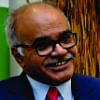
 For all latest news, follow The Daily Star's Google News channel.
For all latest news, follow The Daily Star's Google News channel. 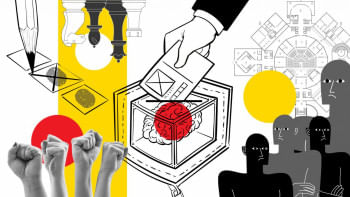
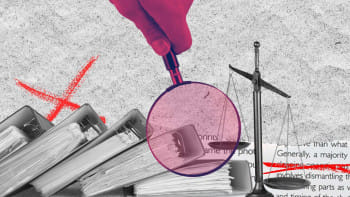



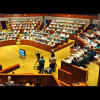
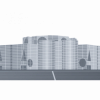
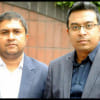



Comments